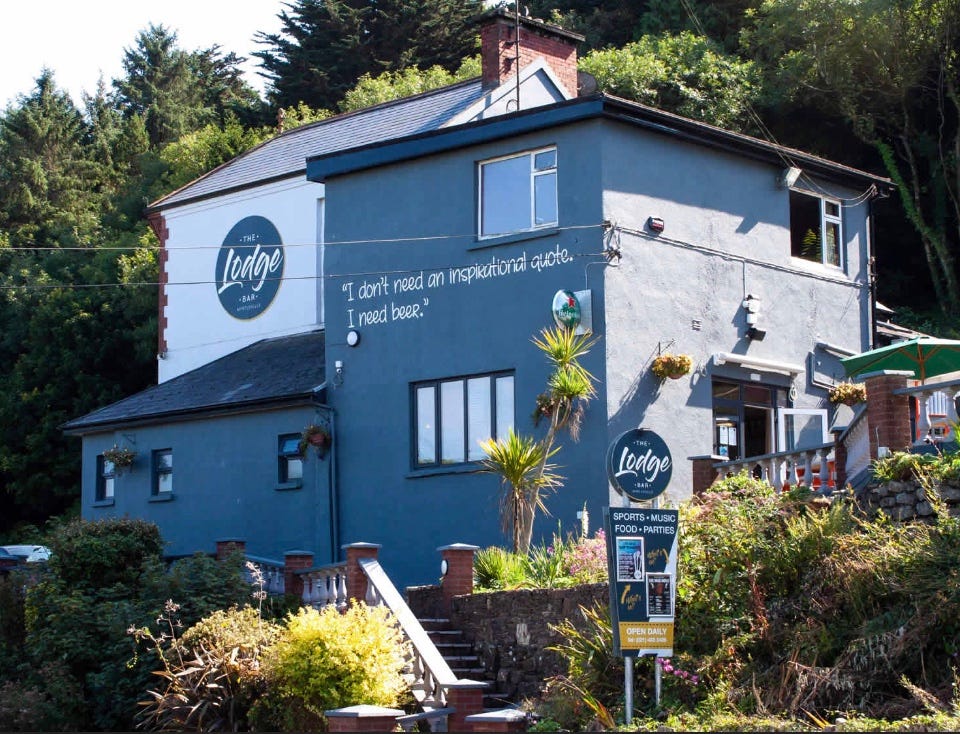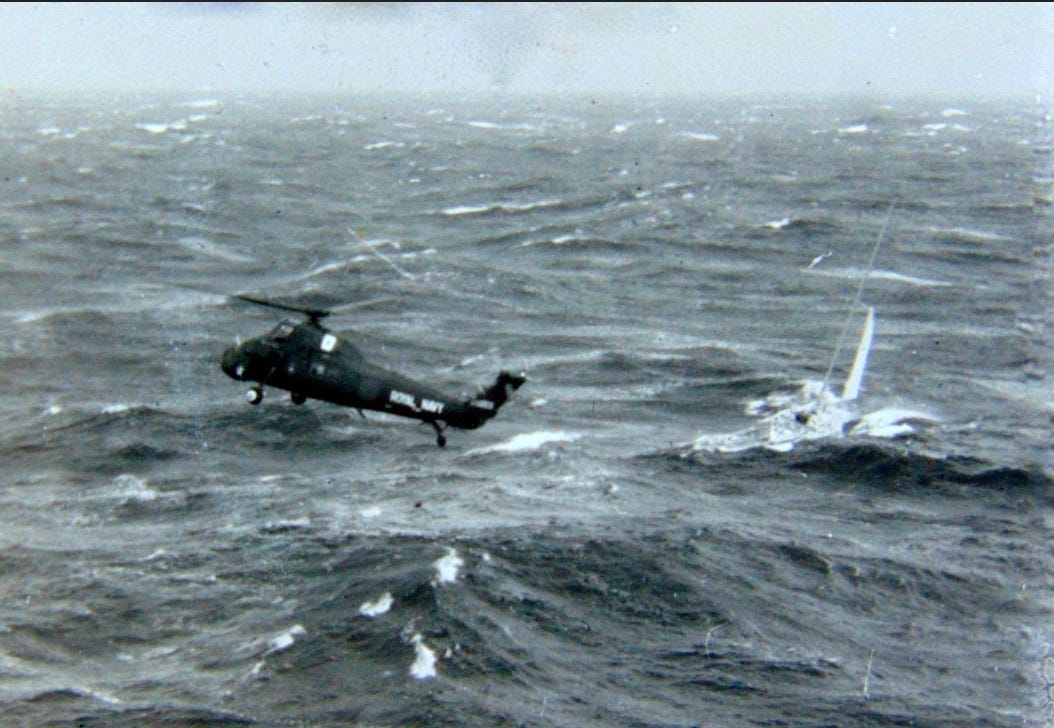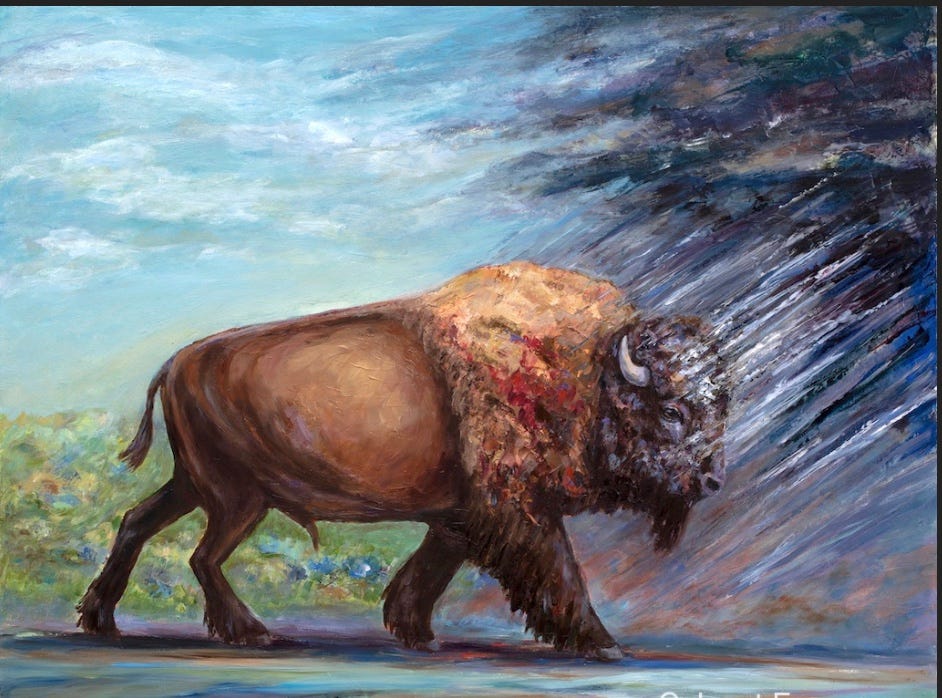So, I am sitting at the bar at Pine Lodge, beside Jim, who has lived here all his life. He is reaching across to pick up his gin and tonic, his third one, and talking away about the days he spent at sea. And the sea is just outside the door, lapping up on the village of Myrtleville, on the south coast of Cork. Clientele are rolling in; most everyone appears to be on a first-name basis, and many say hello to Jim. The bar and kitchen staff are coming and going; everyone has something to do and somewhere to be, and above us, all the industrial light fittings carved into old railway sleepers hanging from the ceiling by iron bars are illuminating the strokes of white chalk paint that adorn the wooden walls. The door swings open again, and a woman with an energetic grin and a strong intent to have a drink slaps Jim on the shoulder and says, ‘Jim! Is it yourself?’ 'Ah, Sheila, hello’. Jim turns to me and says, ‘Sheila is the postwoman’. She says, "Feck off," acknowledging that her profession is clearly irrelevant at the moment. She then orders a glass of white wine and leaves. Things settle around us again, and I catch on to what Jim was saying.
'…1979, was it?
‘It was. I was in Crosshaven on the day when the wrecked yachts started arriving. Jesus, it was awful. The waves just rose up and landed flat on them, like masses of water. Are you familiar with the small cabins on top of yachts? Well, it just landed directly on them and crushed them. The rudders shattered, leaving them stranded.
Jim was talking about the day the biggest peacetime rescue operation in Irish history began, on August 14th, 1979. On Day 3 of the Fastnet Race, 303 yachts set out from Cowes on a 605-mile route, taking them around Fastnet Rock and back to the finish line in Plymouth. A low depression developed over the course of the race and gathered strength. On August 13th, participants reported winds of Force 6 and predicted them to reach Force 8. As the day progressed, members of the race were reporting winds as high as Force 11. A violent storm had taken over the race, and nobody had predicted it. Some of the boats were already circling Fastnet Rock. The lightkeeper that day was Gerald Butler, and he described how 40–50-foot waves outside engulfed the entire rock his lighthouse sat on, and the yachts would rise up to the height he stood. He could look the crew members in the eye, and the entire sea was churning in chaos around them.
The rescue operation began, and it involved some 4000 people—the entire Irish naval fleet, commercial boats, helicopters, tugs, and lifeboats. Aircraft were ordered in from the RAF to act as search coordinators. They began the rescue on the morning of August 14th, at 6.30 a.m., as the winds dropped to a more manageable severe gale, Force 9. But 19 people died that day; at least 75 boats capsized and five sank. And some of the stray boats washed into the harbour at Crosshaven, just around the coast from Myrtleville, where Jim was looking out to sea.
Do you know which boats weathered the storm the best? asked Jim. ‘Well, the ones that knew to go towards deep water—'blue'water’ they call it—sailed straight into the storm. The old sailors here in Crosshaven knew that; they saw the storm coming.
I had to take Jim on his word, for my knowledge of sailing and storm conditions is next to none. But it struck me that I heard a similar thing earlier this week. I heard that the buffalo have a similar tactic. When they see a storm gathering on the horizon, they turn towards it and move at speed directly into the storm because they know that by doing so, the storm will last a shorter time. The cows out in the field in Ireland don’t do that incidentally, nor could they even if they wanted to. Instead, they huddle together in one mass and let it all pass.
But it’s a strikingly symbolic image—those buffalo facing directly into the storm. It’s very fitting and an interesting reminder of how to confront life’s obstacles. We all know that the worst thing we can do when confronted with a major challenge in life is to run from it.
Be like a buffalo.







Really enjoyed that story.
You may not know anything about sailing but your Uncle Liam was an excellent yachtsman.